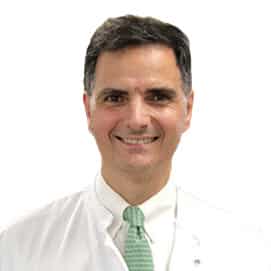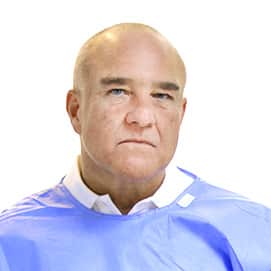The suspicion of carcinoma of the bladder arises on the one hand due to certain indications from the history of the disease (symptoms, such as blood in the urine) and on the other hand from the results of medical examinations.
In case of suspicious findings, cystoscopy (endoscopic examination of the inner surface of the bladder) is prescribed. It, together with biopsy (tissue sampling) are the most important research methods in the diagnosis of bladder cancer.
Under local anesthesia or anesthesia, a cystoscope is inserted through the urethra. On the front of the cystoscope is a lens with an eyepiece (magnifying lens) and a light source to provide visibility. With this, the doctor can examine the walls of the bladder from the inside and evaluate them.
If at the same time changes in the mucous membrane are visible, suspicious of a tumor of the bladder, then another cystoscopy should be performed under anesthesia, in which a biopsy is taken or a transurethral resection (TUR-B, su) of the altered part of the mucous membrane is performed. The tissue is then examined by pathologists for further diagnosis (benign or malignant) and to determine how deep the tumor has penetrated.
The next research method is urography (X-ray with a contrast agent). It serves to assess the condition of the urinary tract (pyelocaliceal system, ureters). Since bladder cancer in advanced stages creates daughter tumors mainly in the lungs, liver, skeleton, these organs are examined, for example, using computed tomography (CT), magnetic resonance imaging (MRI) or skeletal bone scintigraphy.
Based on the results of the studies, the stage of the tumor is determined and appropriate therapy is prescribed.
Head of the Clinic of Oncology, Hematology and Palliative Medicine
Head of the Clinic for General, Visceral, Thoracic and Endocrine Surgery
Head of the Clinic for Radiation Therapy and Radiological Oncology
Video
Request appointment
Useful links
Photo gallery












